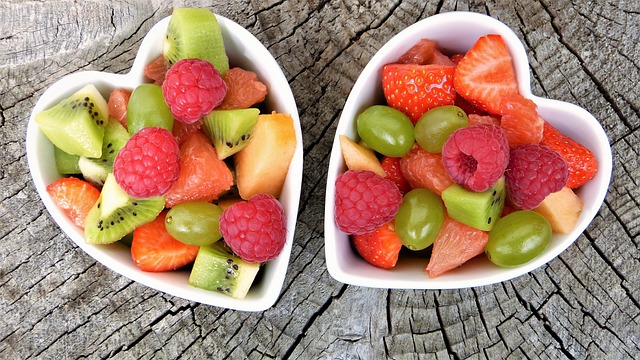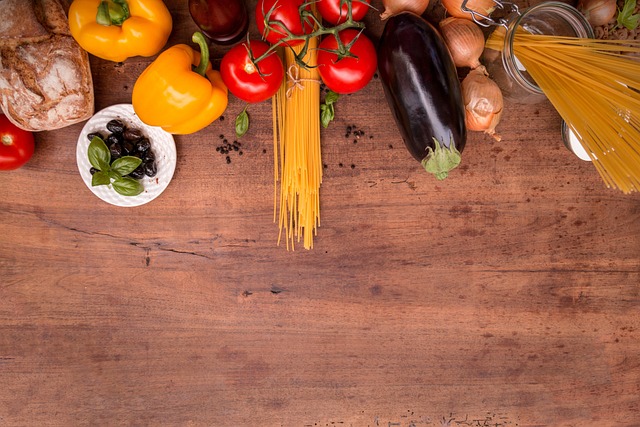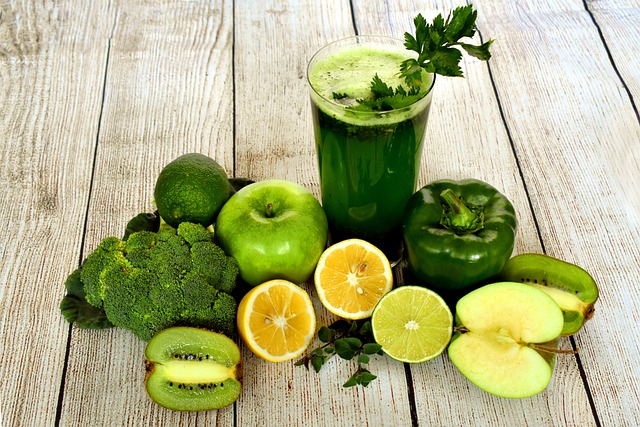Are you considering switching to a vegetarian diet but worried about getting all the necessary nutrients? Don’t worry, I’ve got you covered! When it comes to vegetarianism, ensuring balanced nutrition is key to maintaining a healthy lifestyle. In this article, we’ll dive into the world of plant-based eating and explore the different strategies you can implement to ensure you’re getting all the essential nutrients your body needs. So, let’s dive in and learn more about how to maintain a well-rounded vegetarian diet.
First and foremost, protein is often a concern for those on a vegetarian diet. While it’s true that many people associate protein with meat, there are plenty of plant-based protein sources available. Foods like beans, lentils, tofu, and tempeh can provide you with the protein your body needs to stay strong and healthy. Additionally, incorporating whole grains, nuts, and seeds into your diet can further boost your protein intake. So, you can still enjoy delicious and protein-rich meals without relying solely on animal products.
Another important aspect of balanced nutrition is ensuring you’re getting enough essential vitamins and minerals. One nutrient that vegetarians might need to pay extra attention to is vitamin B12, as it is primarily found in animal-based foods. However, fear not! There are many fortified plant-based food options available, such as nutritional yeast and plant-based milk alternatives, that can help meet your vitamin B12 needs. Additionally, incorporating a variety of fruits, vegetables, and whole grains into your diet will provide you with a wide range of essential vitamins and minerals.
In addition to protein and vitamins, it’s also essential to pay attention to your iron intake on a vegetarian diet. Iron is crucial for healthy blood cells and energy production. While plant-based iron is not as easily absorbed by the body as animal-based iron, you can increase its absorption by consuming vitamin C-rich foods. Pairing iron-rich plant foods like spinach, lentils, and quinoa with citrus fruits or bell peppers can help maximize the absorption of iron. So, by being mindful of your dietary choices and incorporating strategic combinations, you can ensure you’re meeting your iron needs.
In conclusion, maintaining a balanced nutrition on a vegetarian diet is absolutely achievable. By incorporating a variety of plant-based protein sources, ensuring adequate intake of essential vitamins and minerals, and paying attention to iron absorption, you can thrive on a vegetarian diet. So, don’t worry about missing out on essential nutrients – with a little bit of knowledge and planning, you can enjoy a healthy and well-rounded vegetarian lifestyle. Stay tuned for more tips and tricks in our upcoming article. Transitioning to a vegetarian diet can offer numerous health benefits, but it’s important to ensure that you are still receiving all the necessary nutrients for your body to function properly. By understanding the different types of vegetarian diets and knowing the key nutrients to consider, you can create a well-rounded meal plan that meets all of your nutritional needs.
Different types of vegetarian diets
Before diving into the specifics of balanced nutrition on a vegetarian diet, let’s first explore the different types of vegetarian diets. The most common types include:
- Lacto-ovo vegetarian: This diet excludes meat, fish, and poultry, but allows for the consumption of dairy products and eggs.
- Lacto-vegetarian: Similar to the lacto-ovo vegetarian diet, but excludes eggs while still including dairy products.
- Ovo-vegetarian: This diet excludes meat, fish, poultry, and dairy, but allows for the consumption of eggs.
- Vegan: This is the strictest form of vegetarianism, eliminating all animal products including meat, fish, poultry, dairy, eggs, and even honey.
Each type of vegetarian diet comes with its own set of considerations when it comes to meeting nutritional needs. By understanding these differences, you can tailor your food choices accordingly.
Key nutrients to consider on a vegetarian diet
While a well-planned vegetarian diet can provide all the necessary nutrients, there are a few key nutrients that require extra attention:
Plant-Based Protein Sources
Protein is essential for building and repairing tissues, producing enzymes and hormones, and maintaining overall health. While many animal products are rich sources of protein, there are several plant-based alternatives that can help you meet your daily protein needs.
Legumes
Legumes, such as lentils, chickpeas, and black beans, are excellent sources of protein for vegetarians. Not only are they high in protein, but they also contain fiber and other important nutrients. Incorporating legumes into your diet can be as simple as adding them to soups, salads, or stir-fries.
Soy products
Soy products, such as tofu, tempeh, and edamame, are complete sources of protein, meaning they contain all the essential amino acids our bodies need. These versatile ingredients can be used in a variety of dishes, including stir-fries, sandwiches, and salads.
Quinoa and other whole grains
Whole grains, including quinoa, brown rice, and whole wheat, also provide a good amount of protein. These grains are easy to incorporate into your diet as a side dish or as the base of a grain bowl.
Seeds and nuts
Seeds and nuts, such as chia seeds, flaxseeds, almonds, and cashews, are not only high in protein but also contain healthy fats. They can be sprinkled on top of salads or yogurt, or enjoyed as a snack on their own.
Getting Sufficient Calcium
Calcium is crucial for maintaining strong bones and teeth, and it plays a vital role in proper muscle and nerve function. While dairy products are often associated with calcium, there are plenty of plant-based alternatives that can help you meet your calcium needs.
Dairy alternatives like fortified plant-based milks
Plant-based milks, such as almond milk, soy milk, and oat milk, can be a great source of calcium if they are fortified. Look for brands that fortify their products with calcium and Vitamin D to ensure you are getting the nutrients you need.
Leafy green vegetables
Leafy greens, such as kale, spinach, and broccoli, are not only packed with calcium but also provide other important nutrients. Adding these vegetables to your salads, stir-fries, or smoothies can help boost your calcium intake.
Calcium-set tofu
Tofu that is set with calcium sulfate is another excellent source of calcium. Look for tofu options that are labeled as calcium-set and incorporate them into your meals for an added boost of this essential mineral.

Iron-Rich Foods for Vegetarians
Iron is necessary for the production of red blood cells and oxygen transport throughout the body. While animal products are rich sources of iron, there are plenty of plant-based alternatives that can help vegetarians meet their iron needs.
Dark leafy greens
Dark leafy greens, such as spinach, kale, and Swiss chard, are not only high in iron but also contain other important nutrients. Adding these greens to salads or sautéing them as a side dish can help ensure you are getting enough iron in your diet.
Beans and lentils
Beans and lentils are not only a great source of protein but also provide a good amount of iron. Including these legumes in your diet can be as simple as making bean-based soups, stews, or salads.
Iron-fortified cereals and breads
Iron-fortified cereals and breads can be an easy and convenient way to boost your iron intake. Look for products that are fortified with iron and incorporate them into your breakfast or snack routine.
Vitamin B12 Sources
Vitamin B12 is essential for nerve function, DNA synthesis, and red blood cell production. Since this vitamin is primarily found in animal products, it can be a challenge for vegetarians to meet their B12 needs. However, there are plant-based sources and supplements that can help.
Fortified plant-based milks and yogurts
Similar to calcium-fortified plant-based milks, some brands also fortify their products with B12. Check the labels and opt for fortified plant-based milks and yogurts to boost your intake of this essential vitamin.
Nutritional yeast
Nutritional yeast is a deactivated yeast that is often used as a cheese substitute in vegetarian and vegan dishes. It is also a great source of B12. Sprinkle nutritional yeast on top of your salads, popcorn, or roasted vegetables to add a cheesy flavor and get a dose of B12.
Supplements
If it’s difficult to meet your B12 needs through food sources alone, supplements can be a reliable option. Consult with a healthcare professional to determine the appropriate dosage and type of B12 supplement for your specific needs.

Ensuring Omega-3 Fatty Acids
Omega-3 fatty acids are essential fats that play a crucial role in brain function and heart health. While fatty fish like salmon and sardines are common sources of omega-3s, there are plant-based alternatives for vegetarians.
Flaxseeds and chia seeds
Flaxseeds and chia seeds are rich sources of omega-3 fatty acids. You can sprinkle them on top of your morning oatmeal, add them to smoothies, or use them as an egg substitute in baking.
Walnuts
Walnuts not only provide omega-3 fatty acids but also offer a variety of other nutrients. Snack on a handful of walnuts or incorporate them into your meals for a nutritious and omega-3-packed addition.
Algal oil supplements
Algal oil is derived from algae and is a great plant-based source of omega-3 fatty acids. It is available in supplement form and can be a convenient option for vegetarians looking to meet their omega-3 needs.
Meeting Zinc Requirements
Zinc is essential for immune function, protein synthesis, and wound healing. While meat and seafood are common sources of zinc, vegetarians can still meet their requirements through plant-based sources.
Legumes and whole grains
Legumes, including beans, lentils, and chickpeas, as well as whole grains like brown rice and quinoa, are good sources of zinc. Including these foods in your diet on a regular basis can help ensure you are meeting your zinc needs.
Nuts and seeds
Nuts and seeds, such as cashews, almonds, and pumpkin seeds, are not only high in zinc but also provide other important nutrients. Sprinkle them on top of your salads, stir them into your yogurt, or enjoy them as a snack to boost your zinc intake.
Zinc-fortified foods
Some foods, such as cereals and plant-based protein products, are fortified with zinc. Check the labels and opt for these fortified options to ensure you are getting enough zinc in your diet.

Including Vitamin D
Vitamin D is essential for bone health, immune function, and the absorption of calcium. While sunlight exposure is the most natural way to obtain Vitamin D, there are other sources that vegetarians can incorporate into their diet.
Sunlight exposure
Spending some time in the sun every day can help your body produce Vitamin D. Aim for 10 to 15 minutes of unprotected sun exposure on your arms, legs, or face to help meet your Vitamin D needs.
Mushrooms
Certain types of mushrooms, such as shiitake or maitake mushrooms, have the ability to produce Vitamin D when exposed to sunlight. Including these mushrooms in your meals can provide an additional source of this essential vitamin.
Vitamin D-fortified foods or supplements
Some foods, including plant-based milks, orange juice, and cereals, are fortified with Vitamin D. Additionally, supplements can be taken if it’s difficult to obtain adequate amounts of Vitamin D through food sources or sunlight exposure.
Balancing Carbohydrate Intake
Carbohydrates are the primary source of energy for our bodies, and it’s important to include them in a balanced diet. The key is to choose complex carbohydrates that are high in fiber and nutrients.
Whole grains
Whole grains like brown rice, quinoa, and whole wheat bread or pasta are excellent sources of complex carbohydrates. They provide sustained energy and valuable nutrients. Incorporate these whole grains into your meals as a side dish or as the base of a grain bowl.
Legumes
Legumes, such as lentils, chickpeas, and black beans, are not only a good source of protein but also contain complex carbohydrates. Including legumes in your diet can help balance your carbohydrate intake while providing other important nutrients.
Vegetables and fruits
Vegetables and fruits are filled with complex carbohydrates, fiber, and a variety of other valuable nutrients. Include a variety of colorful vegetables and fruits in your meals to ensure a well-balanced and nutritious vegetarian diet.

Conclusion
In conclusion, ensuring balanced nutrition on a vegetarian diet requires careful consideration of specific nutrients. By incorporating plant-based protein sources like legumes, soy products, quinoa, and nuts or seeds, you can meet your protein needs. Getting sufficient calcium can be achieved through dairy alternatives, leafy green vegetables, and calcium-set tofu. Iron-rich foods for vegetarians include dark leafy greens, beans and lentils, as well as iron-fortified cereals and breads. Vitamin B12 sources can be found in fortified plant-based milks and yogurts, nutritional yeast, or through supplements. Ensuring omega-3 fatty acids can be achieved through flaxseeds, chia seeds, walnuts, or algal oil supplements. Meeting zinc requirements can be accomplished by consuming legumes, whole grains, nuts and seeds, or zinc-fortified foods. Including vitamin D can be achieved through sunlight exposure, mushrooms, or vitamin D-fortified foods or supplements. Balancing carbohydrate intake can be achieved through whole grains, legumes, vegetables, and fruits. By considering and incorporating these key nutrients, you can ensure balanced nutrition on a vegetarian diet and reap the many health benefits that come with it. So, go ahead and enjoy the wonderful world of vegetarian cuisine while nourishing your body and leading a healthy lifestyle.
